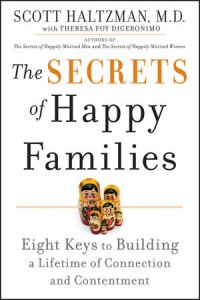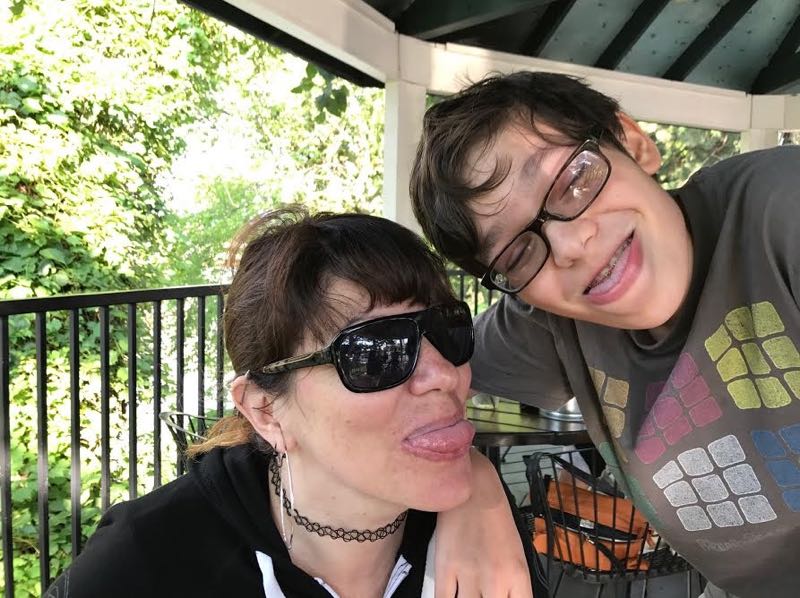 Let’s face it. There’s not a parent on the planet that doesn’t get a little panicked at the thought of 20 hours in the car with their offspring. So, how do you plan for a more successful road trip? Dr. Scott Haltzman, author of The Secrets of Happily Married Men: Eight Ways to Win Your Wife’s Heart Foreverand The Secrets of Happily Married Women: How to Get More Out of Your Relationship by Doing Lessstudied families that bounce back and stick together, even through turbulent times. His new book, The Secrets of Happy Families: Eight Keys to Building a Lifetime of Connection and Contentmentteaches families how to define their values, communicate, handle conflict, bounce back from adversity, and much more. I talked to Dr. Haltzman about applying these same principles to road trips. He has seven tips all parents should memorize.
Let’s face it. There’s not a parent on the planet that doesn’t get a little panicked at the thought of 20 hours in the car with their offspring. So, how do you plan for a more successful road trip? Dr. Scott Haltzman, author of The Secrets of Happily Married Men: Eight Ways to Win Your Wife’s Heart Foreverand The Secrets of Happily Married Women: How to Get More Out of Your Relationship by Doing Lessstudied families that bounce back and stick together, even through turbulent times. His new book, The Secrets of Happy Families: Eight Keys to Building a Lifetime of Connection and Contentmentteaches families how to define their values, communicate, handle conflict, bounce back from adversity, and much more. I talked to Dr. Haltzman about applying these same principles to road trips. He has seven tips all parents should memorize.
His number one advice? ” Before the trips, figure out what your objectives are. People often assume that their definition of a holiday is the same as others’. Some enjoy taking a road trip for historic enrichment; others appreciate the ability to get fresh air and exercise.” Our last family road trip was much happier after following this advice. We realized that, as parents, we thought it was all about history and scenery but my daughter just wanted a swimming pool. Duh! We talked before the trip with her about the details and worked in an extra day here and there for things she really wanted to do, which made the whole trip very easy. Wish I’d thought of that before!
Haltzman says that family members will often disagree about what their main goals are when they go on a road trip. So, strategy number two is to try to recognize those goals ahead of time. “Teenage children will be thinking about meeting friends and possibly having a romance while on the road. They will frequently be concerned about their ability to keep in touch with their friends back home, maintaining the belief that in their absence their friends will forget about them. Therefore, at that age, it may be appropriate to make sure that you stay at hotels that have Internet access at least part of the vacation,” says Haltzman.
Expert tip number three is to try to choose sites and attractions that appeal to the needs of multiple people at different ages. Stopping at a mall that has a food court, discount shopping, upscale stores, a movie theatre and an indoor roller coaster, for example, provides options for all of the members of the family to get their needs met. If you need help finding these attractions, check with the local visitor’s bureau, they usually have many great suggestions and even discounts and advice.
Haltzman says it’s important to set clear limits and boundaries on the expectations of your children. Which is tip number four. “It’s important for children to know before the road trip begins what acceptable and unacceptable behaviors are,” advises Haltman. For example, you may want to limit what people can order on a menu when they go to a restaurant. Alternatively, you can make a rule that “you can order anything you want, but you must finish everything on your plate.” Perhaps it’s not so important that they are tucked in for bed by 9 p.m., but it’s critically important that they call to check-in and tell you where they are if they stay out past eight. The vacation should be fun for everyone, and it’s not fun for a parent if he or she spends the time worried about a child, or arguing over what the rules are.
Strategy number five is to keep lines of communication open. Haltzman says that some family members are verbal communicators, and others communicate with nonverbal messages. He explains, “both are valid, but you have to be aware of how each member of the family communicates best, and respect their differences in communication styles. If you start to confront difficulties in the progress of your road trip, put time aside to have a meeting where everybody can talk about their feelings, and sort out the best way to get along. Remember, you all don’t have to agree all the time, but you must show respect for your family members.”
Tip number six is where our family could use a little help. Haltzman’s advice is to be well prepared for a down time. Because there’s likely no more likely place to hear the frustrating, “I’m bored!” than a road trip, Haltzman says that being prepared is a big step towards heading off the frustration for both you and your child. The problem is that books and games only go so far. We love the game “Would You Rather?” for being entertaining but also for getting us talking as a family.
I took that a step further on our last trip and wrote down some open ended questions about life, friends, food, activities and other things I really wanted to know or thought my daughter would like learning about. I tried to non-chalontely ask them when things got a little quiet and I felt the “I’m Bored” monster popping his head. It worked pretty well and we had some great talks about values, how to handle bullies and other topics that we probably would never have gotten a chance to explore. I’ll try to find some more ideas like that for the next trip and expand on the general idea.
I also found that the more “unplugged” we were, the happier everyone was. For some reason, any iPod or DVD time turns my daughter’s attention span into a ten second firecracker. Which is fine when I can send her outside to play or distract her in other ways, but in the car it’s a tempting strategy that usually backfires. All kids are different, though, so finding the best way to keep your kids centered and calm for the most possible hours is what’s key.
Last, Haltzman says that planning for the unexpected is vital. Tip number seven centers around what you’re going to do when you get to Wally World and find them closed. If you believe that the only happy vacation is the one that goes exactly as planned, you probably haven’t had many successful vacations with kids. Or airplanes. Or cars. Or anything involving the weather. You get my drift. Haltzman advises, “Stay flexible, and use these small setbacks as opportunities to get to know your family, solve problems, and demonstrate that you can overcome obstacles when you all work together. This helps to maintain a positive attitude with in the family, gives you an opportunity to appreciate each other’s strengths, and sets of model for problem-solving that extends beyond the road trip, and into all other walks of life.”
On our last trip, I tried to really embrace this attitude. I love planning our trips, and if something breaks down, I tend to look at it as a failing of the plan (or myself) instead of an opportunity to teach my daughter healthy problem solving, or just how to make a new plan. So, we chatted about this before the trip and I asked the family to remind me when I was having trouble remembering my goal. We ended up having a lot less stress, and had a lot of fun solving a couple of issues. I have a long way to go, but realizing this was a trigger for adding stress to the trip really helped.
What are your favorite trips for having a successful family road trip? Post them in the comments and I’ll send one lucky reader a copy of “The Secrets for Happy Families.”




